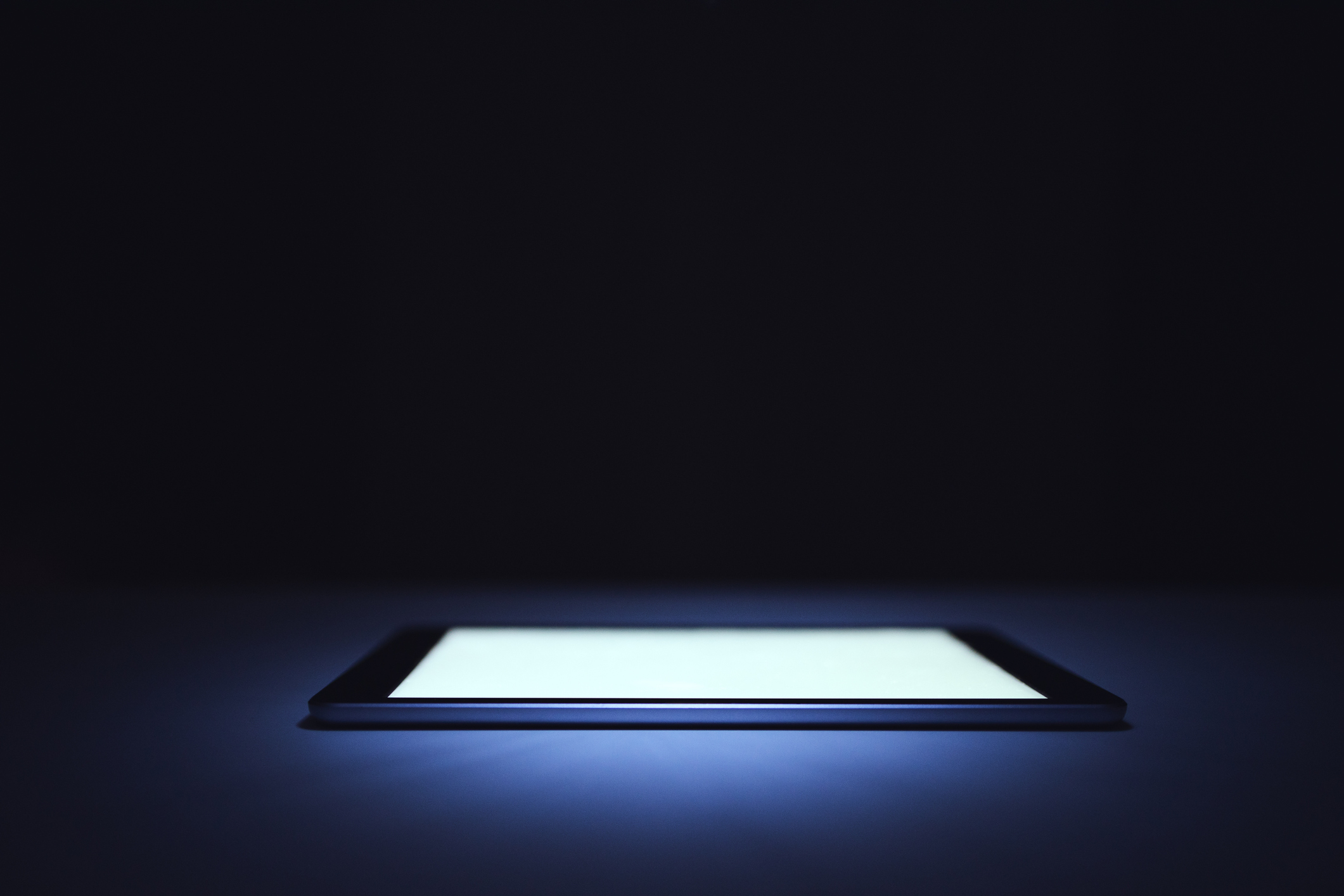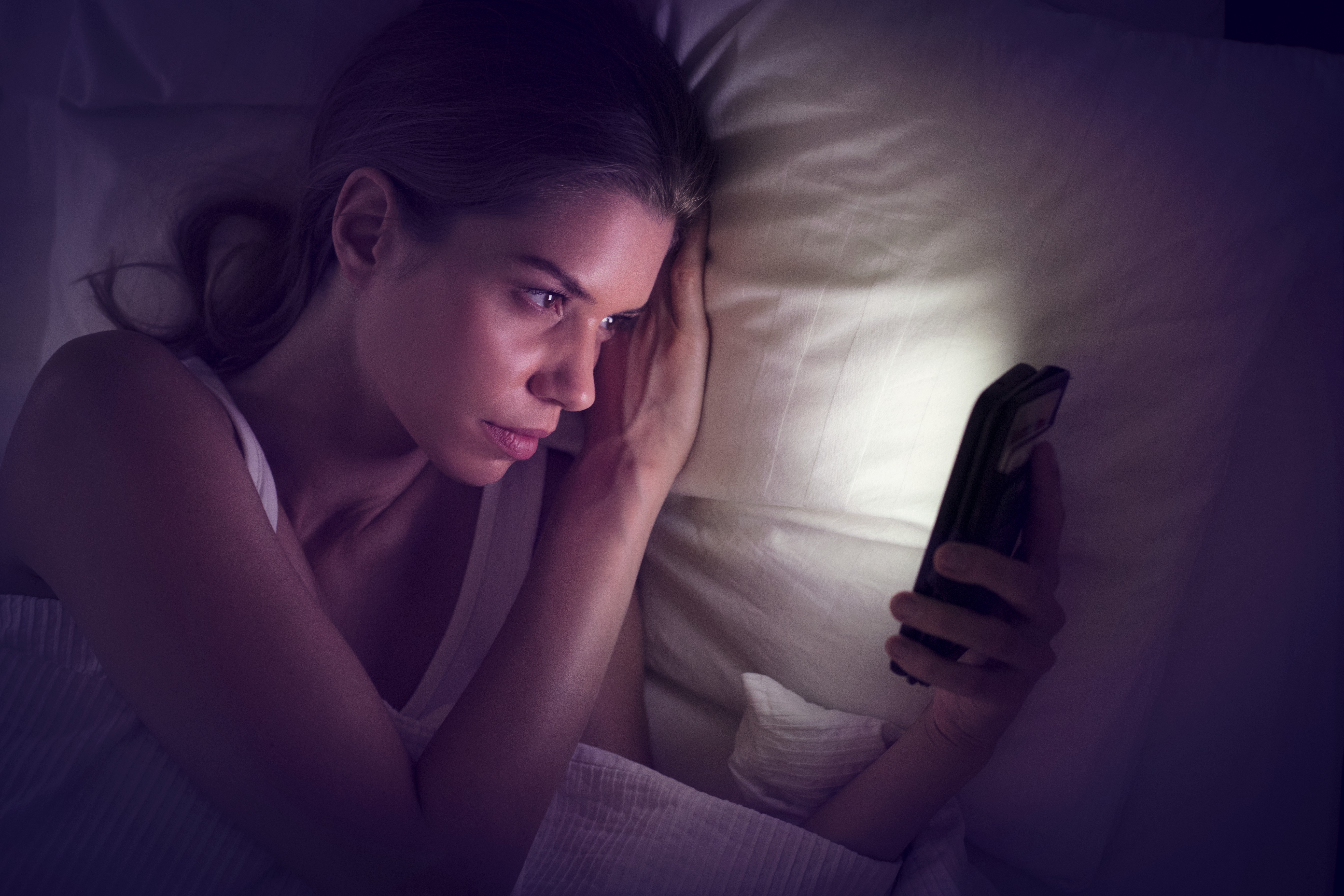New study finds a link between blue light before bed and weight gain
Blue light doesn't just impact sleep


Too much screen time has been proven to have negative effects on physical and mental health. But a new study by the University of Tsukuba in Japan, suggests that blue light, along with the long-held view of impacting sleep, can actually contribute to weight gain too.
A study published in Science Daily compared the effects of light-emitting diodes (LEDs) with organic light-emitting diodes (OLEDs). LED lights are commonly associated with blue light while OLED light has a warmer tone and uses organic materials, resulting in a softer emission of light, which researchers predicted would have less of a negative effect on your sleep.
After studying the participants and the physical processes that occurred while they slept, researchers found that those exposed to OLEDs before falling asleep, “exhibited significantly decreased energy expenditures, core body temperature, and increased fat oxidation.”
Meaning, that those who were not exposed to blue light had increased body fat-burning, compared to those who were exposed to blue light.
“Thus, light exposure at night is related to fat oxidation and body temperature during sleep. Our findings suggest that specific types of light exposure may influence weight gain, along with other physiological changes," according to Professor Kumpei Tokuyama, the author of the study, in a statement.

But what is blue light?
Blue light is a refracted light, which can cause damage to the eyes and brain. The negative effects of blue light don’t stop there either, it’s also been shown to contribute to digital aging by damaging our skin.
Blue high energy visible light (HEV) is the main culprit for digital ageing. It is emitted from your laptop, phone or tablet. A study by Unilever in January this year, found that five working days in front of a screen can have the same impact on the skin as spending 25 minutes in the midday sun without any protection.
Sign up to our free daily email for the latest royal and entertainment news, interesting opinion, expert advice on styling and beauty trends, and no-nonsense guides to the health and wellness questions you want answered.
"Blue light can cause discolouration and damage collagen by creating free radicals," says Noella Gabriel, co-founder of Elemis.
So, if scrolling on your phone has become a large part of your nightly routine, it may be time to rethink your bedtime regimen (we have a guide about how to establish good sleep hygiene). Trade your phone for one of 2021's best books, or a sleep guided meditation that will help you drift off. And if you use sleep apps on electronics you keep in your bedroom, consider investing in brands and models that use OLED lights during your next upgrade.
Rylee is a U.S. news writer who previously worked for woman&home and My Imperfect Life covering lifestyle, celebrity, and fashion news. Before joining woman&home and My Imperfect Life, Rylee studied journalism at Hofstra University where she explored her interests in world politics and magazine writing. From there, she dabbled in freelance writing covering fashion and beauty e-commerce for outlets such as the TODAY show, American Spa Magazine, First for Women, and Woman’s World.
